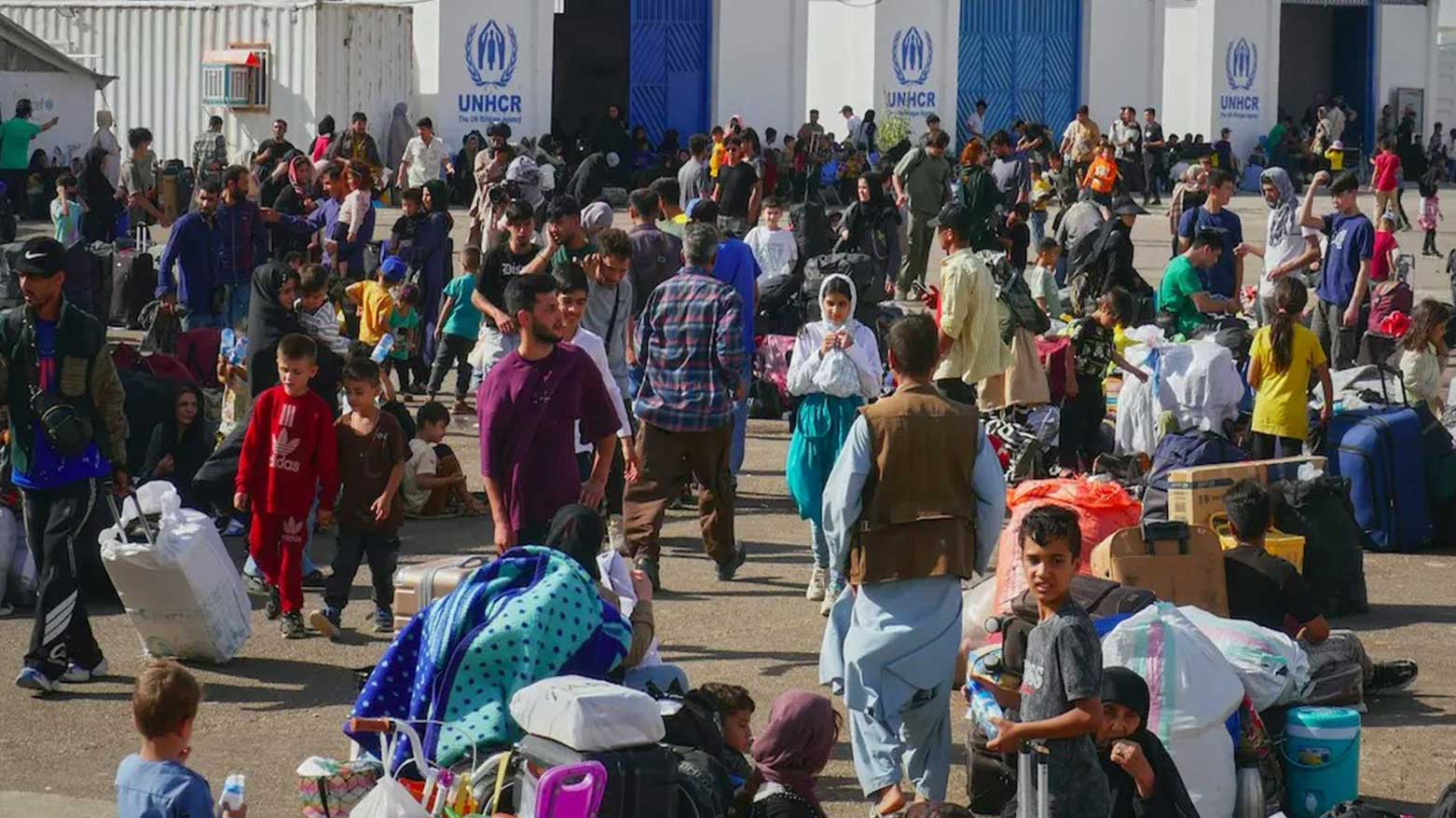Iran Urges Illegal Foreigners, Especially Afghans, to Leave Immediately or Face Prosecution
In recent months, Iranians have increasingly voiced concerns about the rising number of Afghan nationals, with some accusing them of spying for Israel following the outbreak of a 12-day conflict between Iran and Israel in June.

ERBIL (Kurdistan24) — Iran’s attorney general on Saturday called on all foreigners living in the country illegally—especially Afghan nationals—to leave “as soon as possible” or face legal action, warning of prosecution amid rising public pressure and regional tensions, according to the Associated Press (AP).
“Foreign nationals, especially brothers and sisters from Afghanistan whom we have hosted for years, help us so that illegal individuals leave Iran in the shortest period,” Attorney General Mohammad Movahedi Azad said, as quoted by the official IRNA news agency.
Iranian authorities reported in April that more than 6 million Afghans are currently living in Iran, with up to 2.5 million residing without legal status. The government has recently ramped up efforts to enforce immigration laws, driven in part by growing domestic frustration and the country’s worsening economic challenges.
In recent months, Iranians have increasingly voiced concerns about the rising number of Afghan nationals, with some accusing them of spying for Israel following the outbreak of a 12-day conflict between Iran and Israel in June.
Iran’s top diplomat in Kabul, Ali Reza Bikdeli, visited the Dogharoun border crossing this week and pledged to help facilitate the repatriation of Afghans. “We are working with Afghan authorities to ensure a smooth and humane return,” state TV quoted him as saying.
Massive Returns Raise Alarms
According to the U.N. High Commissioner for Refugees (UNHCR), at least 1.2 million Afghans have been forced to return from Iran and Pakistan so far in 2025. More than half of these returnees came from Iran, following a March 20 deadline that urged undocumented migrants to leave voluntarily or face deportation.
Iran alone has deported more than 366,000 Afghans this year, including recognized refugees and individuals in refugee-like situations. The single highest daily return was recorded on June 26, when over 36,000 Afghans crossed the border in just one day, amid fears sparked by the Iran-Israel conflict.
“Afghan families are being uprooted once again, arriving with scant belongings, exhausted, hungry, scared about what awaits them in a country many of them have never even set foot in,” said Arafat Jamal, the UNHCR representative in Kabul.
Taliban Pledges Support, Pakistan Sets New Deadline
The Taliban, seeking to ease fears among returnees, pledged amnesty and support during Eid Al-Adha. Taliban Prime Minister Mohammad Hassan Akhund publicly invited Afghans who fled after the fall of the Western-backed government to return, promising their safety and reintegration.
On Saturday, a high-level Taliban delegation traveled to western Herat province to meet returnees and vowed to provide urgent humanitarian services and long-term support.
Meanwhile, neighboring Pakistan has set a June 30 deadline for the departure of 1.3 million Afghans, with plans to expel a total of 3 million by the end of the year, adding further strain to Afghanistan’s already fragile humanitarian landscape.
With more than half of Afghanistan’s population reliant on aid, and international funding sharply reduced due to Taliban restrictions—especially on women and girls—the surge in forced returns threatens to further destabilize the country’s already precarious recovery.
